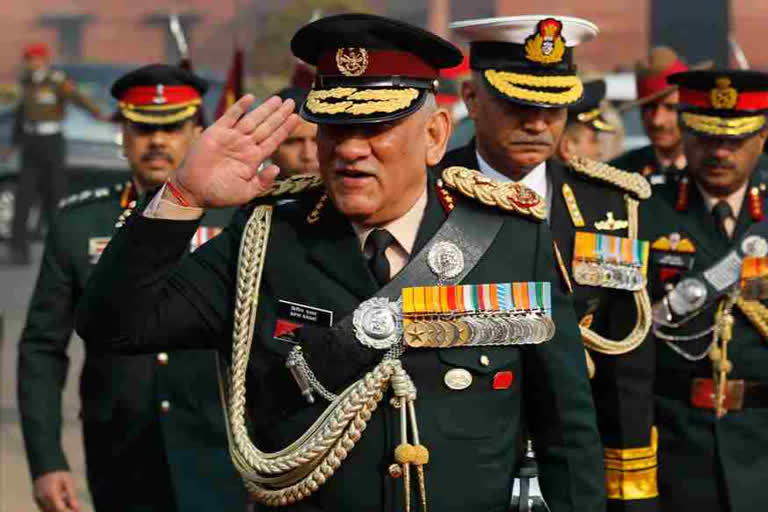New Delhi: With the untimely death of India’s first Chief of Defence Staff General Bipin Rawat in a helicopter crash in Coonoor in Tamil Nadu on Wednesday, an era in India’s modern military history draws to a close.
Sixty-three year old General Rawat was appointed India’s first Chief of Defence Staff in December 2019 by the Prime Minister Narendra Modi’s government, a decision which has been considered one of the biggest military reforms in the country’s history as Indian policy makers have been against the idea of concentrating too much power in one military officer.
As the first officer to occupy the office of the CDS, he was given the responsibility to implement an even bigger military reform, to convert the Indian military’s command based structure into theatre based commands having elements of all three services for joint and integrated operations. These theatre commands will be responsible for all kinds of war efforts in their area of responsibility.
As per the mandate, General Rawat had hit the ground running once he assumed office in January last year. He asked the officers to prepare a roadmap within six months for creation of an integrated air defence command to protect the country’s skies.
As per the plan, the Indian military is to be reorganized in four theatre commands and one air defence commands over and above 17 operational commands situated in different parts of the country.
General Rawat often advocated a ‘Whole of Nation Approach’ to pool in all available resources of the nation to fight a swift and decisive war against an adversary.
General Rawat was born in March 1958 in an army family in Pauri district in Garhwal region of hill state Uttarakhand. His father Laxman Singh Rawat was an army officer and retired as a Lt General from the Indian Army.
General Rawat was commissioned in Indian Army’s Gorkha regiment in 1978 and rose to the ranks of Eastern Army Commander, then Vice Army Chief and finally became the 26th Chief of Army Staff in December 2016.
In September 2019, he was appointed the 57th Chairman of the Chiefs of Staff Committee after the then Air Force Chief BS Dhanoa superannuated and stepped down in December that year when was appointed the country’s first Chief of Defence Staff (CDS).
General Rawat was experienced in high-altitude warfare and counter-insurgency operations and international peace-keeping missions.
Controversial comment on IAF's role
As a professional soldier, General Rawat had strong views on the nature and direction of military reforms in the country which sometimes put him at odds with other services.
For example, in July this year, General Rawat’s comment that the Air Force continues to be a supporting arm for the ground forces created controversy and attracted protest from retired air force officers.
"Do not forget the IAF continues to remain a supporting arm just as artillery support or engineers support the combatant arm in the Army. They will be a supporting arm," General Bipin Rawat had said then.
General Rawat was also known for his hawkish stand against India’s adversaries as he often advocated a more muscular approach towards China and Pakistan.
In September 2017, as the then Army Chief, General Rawat had warned against gradual taking over of Indian territory in Himalayan region by China, calling it muscle flexing by China by using this tactic of ‘salami slicing’ that was testing the country’s limits and could lead to a war.
It prompted Chinese diplomats to question whether the Indian Army Chief was authorized to comment on border tensions with China.
